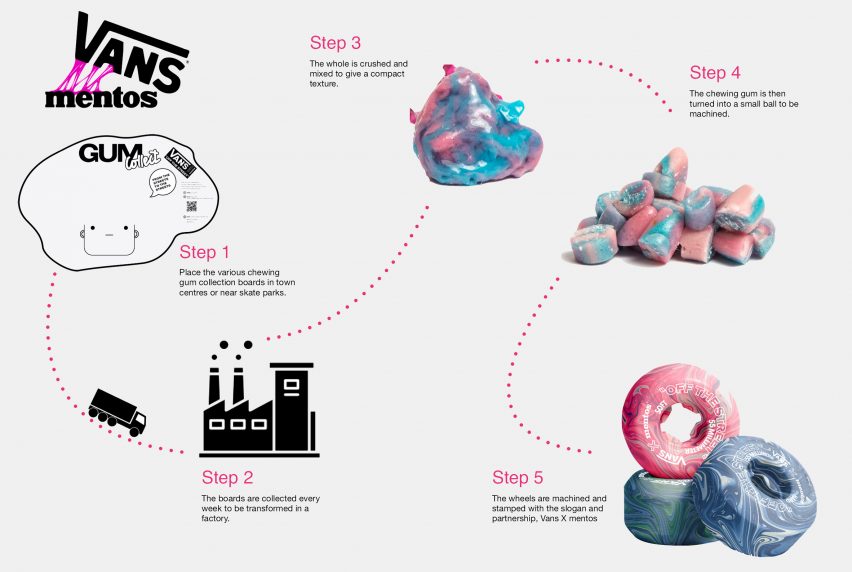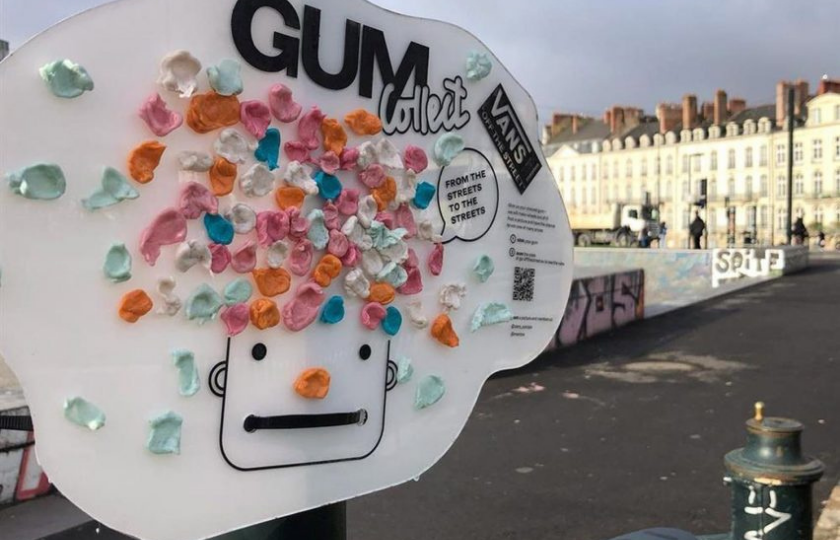Chewing gum contributes to a chunk of the plastic pollution problem; sticky, tacky, and annoyingly hard to clean up. Spitting out used gum on sidewalks or sticking it on walls is not just littering, it can also choke wild animals who mistake it for food.
Centuries ago, chewing gum was all-natural, made from the sap of the Sapodilla tree. But, unfortunately, most modern gum is now made from polyisobutylene, a synthetic non-biodegradable plastic polymer, the same material used to manufacture tyres.
French design students Hugo Maupetit and Vivan Fishcher has turned a sticky situation around and has developed a method to turn used chewing gum into colourful skateboard wheels.
The students started their project by installing special collection boards where passersby can stick their used gums rather than spitting or dropping them on the floor.
Afterwards, the used gums were collected weekly and then ground with the collection board made from polymethyl methacrylate plastic (PMMA).
“We collected more than 60 chewing gums with one board,” Maupetit told Dezeen.
“So it is possible to collect several thousand pieces of chewing gum each month, but as we didn’t get permission from the city of Nantes to install our collection boards on a massive scale, we couldn’t test this.”
The PMMA material help stabilise the chewing gum as it is bound together, mixed with natural dyes before being injection-moulded to produce the skateboard wheel, which comes in four sizes and three hardness levels.
“During our test phases, we needed between 10 and 30 chewing gums per wheel, depending on the size of the gum and the desired hardness of the wheel,” he added.

According to the duo, once the chewing gum wheel has reached the end of its life, it can again be ground up and melted to create a brand new wheel, forming a closed-loop system.
The project is currently being tested on a small scale, but the students hope to collaborate with major skatewear labels such as Vans, and Mentos parent company Perfetti Van Melle, one of the world’s biggest manufacturers of confectionery and chewing gum.
“It’s extremely important for brands to get involved in this kind of issue, simply because multinationals are the biggest producers of industrial waste,” Maupetit explained. “By recycling this waste, it becomes a virtuous circle, with the company losing less material and making money from what was originally waste.”



